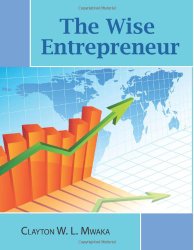Let’s share again something regarding tax today. I do hope the word ‘tax’ is not taking away your appetite for reading this blog. Is it? Even if you hate tax with a passion – and I know some arrogant tax collectors make people do this – just read this brief article. Possibly you might get a thing or two to moderate your hatred. You are an entrepreneur, and I do not think you can escape taxation as long as you operate on this earth. Someone said that tax is a necessary evil. And it is very certain. Quoting Benjamin Franklin, ‘In this world nothing can be said to be certain, except death and taxes’. I think you just need to be informed – and do some tax planning, otherwise your business can suffer excessively. The tax guys could easily take advantage of your ignorance. I guess you don’t want this; do you?
The term tax planning simply refers to legal means by which you can shield your enterprise or yourself from over taxation. Yes – I said legal. It is part of tax avoidance but not tax evasion. Tax evasion is illegal but tax avoidance is not illegal as it uses legal tax planning to minimize and also delay payment of taxes. Regarding delaying tax payment – don’t you agree that cash today is a better choice than cash in two years’ time? I’m not going to bore you with so much explanation of legalities and illegalities of tax here. What I just intend to do here is to highlight a few tax planning issues you can utilize, if you are not yet doing so. Possibly your tax advisers can guide you so that your enterprise might get some value from these.
Many tax planning schemes exist and most of these depend on the nature of tax in consideration and the relevant laws wherever you are. Sometime back in one of my blogs I mentioned the need for an entrepreneur to have some tax knowledge, and I mean it. I know you will tell me you have a tax adviser, or consultant, whatever you want to call him. My rule is this – try and understand the tax laws; and rule number two is – in case of doubt refer to rule number one. Do you want to be so ignorant an entrepreneur who can’t even remember whether all tax returns for your enterprises have been made for a given period? I don’t think so. Now, what are some of the tax planning considerations that might help you minimize and delay paying tax?
- Choices of procurement of assets. Do you know that the way you finance your fixed assets have an impact on your tax? Will you own the asset or lease it? Will you finance it with capital or loan, finance lease, etc? You need to consider the tax benefits of the different options you have. How about documentation of the transaction? Have you ever met an entrepreneur who cannot even produce a receipt for the asset he is claiming tax allowances on, or possibly registered the said asset in personal names and yet desires the company to benefit from its capital allowances? I guess you know what the taxman will tell you. Don’t you?
- Investment incentives. Different countries and territories have different investment incentives to promote enterprises that positively impact the economies. Are you aware of these incentives in your area, or industry? These might be tax holidays, capital allowances, tax incentives etc. If you have no clue of this you might be donating unknowingly some money to the government. Will you blame anybody for your ignorance?
- Business financing options. Beyond asset financing mentioned above, the overall financing structure of your enterprise has tax implications, and you need to get the right advice to be able to make your enterprise financing tax efficient. Don’t you think so? For example, debt financing is good because your interest costs are tax deductible – but remember there are also some silly laws about interest that you should take care of to avoid the tax guys giving you an upper cut.
- How about export schemes. Are you aware that most governments and economies always encourage exports of goods and services because they bring in foreign currency? Now, there are usually sections of the tax law that provide for tax benefits for enterprises that do export. Are you an exporter? Are you aware of these laws? Or you just operate blindly? Remember, you will be very lucky to hear a government official or tax collector tell you that you are paying too much tax.
- Group company considerations such as means of financing subsidiaries, transfer pricing, sharing tax savings, profit transfer, etc are also good tax planning considerations you can have. The main disadvantage with this is that only few business players can indeed make use of these, as the majority of enterprises cannot because they are simply too small and do not operate internationally. Again, globally now there appears to be concerted efforts at fighting some of these schemes. They largely remain legal though in many jurisdictions. Business executives worldwide who oftentimes defend the rationale for tax payment oftentimes find themselves deploying tax shielding approaches for their entities.
- Capital receipts and other receipts not subject to tax. Capital receipts include cash from sale of assets (tangible or intangible), cash from sale of shares, cash from debt instrument such as bonds etc. I hope you know these. You need to get good advice on these for your tax planning purposes; otherwise you will make tax collectors laugh to the bank after making a kill on your enterprise simply because you don’t know some things. Don’t you think so?
- Allowable losses or tax losses that can be offset from tax gains. Do you know and understand the losses that you can take advantage of to reduce your taxes? Have you been informed that you can even carry forward certain losses to reduce your taxes in future years? Are you the type of entrepreneur who writes of losses in a given year – and then take a full hit on profits for the next year? Better be wise Mr. Entrepreneur!
- Proper use of tax deductible and tax efficient expenditures. Does your accountant or tax consultant know all tax deductible or tax efficient expenditures suitable for your enterprise? Are you the entrepreneur keen on these transactions? Or you just proceed and do whatever transaction you want in whatever manner you choose? Do you even know that the way you document your expenditures can make the taxman allow or disallow them for tax purposes?
- What about double taxation? Does your enterprise operate across borders or different tax jurisdictions? Do you know areas where you are being doubly taxed? Do you know how to put forward your case to avoid double taxation?
Candidly, I think I have given you more than enough clue. Don’t blame anyone! But just a word of wisdom, please get the right advice to be able to fully understand and properly implement any of the above that might be relevant to your enterprise. Do you get me? Don’t come back crying because you simply read this article and moved anyhow.
Good luck with you tax planning endeavors in your enterprise!
Till then,
The Wise Entrepreneur















